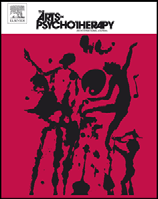A Qualitative Analysis of Coping With Trauma and Exile in Applied Theatre With Syrian Refugees : The Role of Within-Group Interactions
Around the world, armed conflicts force people to leave their homes, families, and communities in search of protection from collective violence, and seek to regain a meaningful perspective on their lives within the borders of their Western host societies. As the dynamics of organized violence and forced displacement continue to impact and disrupt relationships in refugee communities, scholars in the field of refugee trauma care have increasingly argued for the need to understand spaces that are able to restore safety, meaning, and connectedness in the process of post-trauma reconstruction within those disrupted communities. This is reflected in the growing interest in community-based psychosocial interventions. In this article, we focus on applied theatre interventions with refugee communities. In doing so, we aim to understand the restorative role of within-group interactions in applied theatre. We performed a case study of a community-based applied theatre project with Syrian refugees who were recently resettled in Belgium. The qualitative analysis that was the result of this case study allows us to develop an understanding of the various processes of coping with trauma and exile that are at play in within-group interactions between Syrian community members in applied theatre, against a background of authoritarian rule, collective violence, and forced displacement.
Highlights
Within-group interactions in applied theatre can play a r5restorative role in coping with trauma and exile in refugee communities.
The group in applied theatre provides participants a temporary safe haven.
Within-group interactions reinstall a sense of personal continuity.
Within-group interactions install a sense of hope for political and social change.
Within-group interactions enable participants to reshape cultural belonging.

